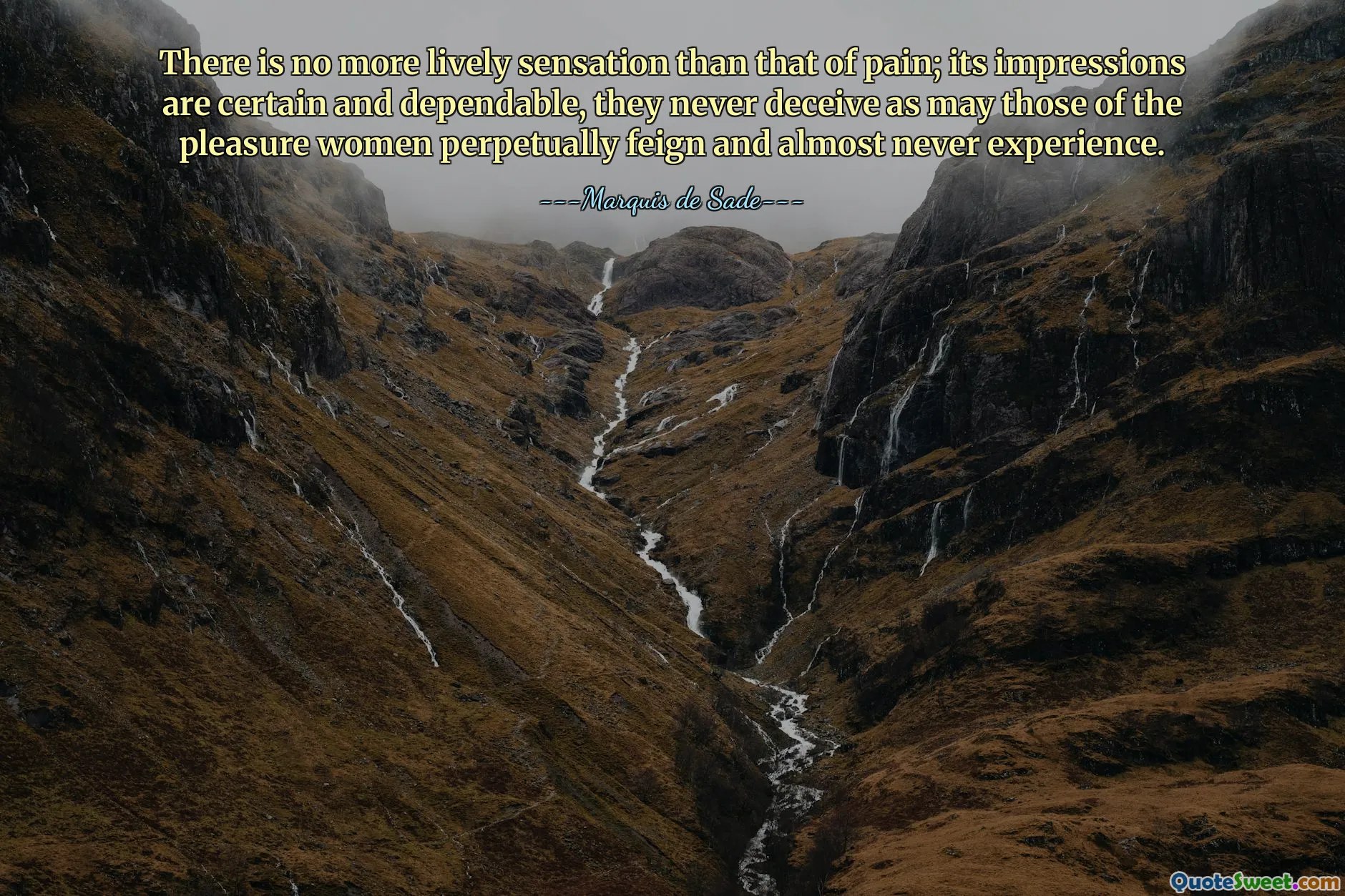
There is no more lively sensation than that of pain; its impressions are certain and dependable, they never deceive as may those of the pleasure women perpetually feign and almost never experience.
This quote presents a stark and somewhat controversial view on human sensations, contrasting the certainty of pain with the supposed insincerity of pleasure, particularly in the context of women. The assertion that pain is more vivid and reliable than pleasure touches on a fundamental truth about human experience: pain is often unmistakable and universally recognized. It demands attention and provokes a clear, unambiguous response, while pleasure can be more subjective and variable, conditioned by social, psychological, or personal factors.
Moreover, the quote implies skepticism, or even cynicism, regarding expressions of pleasure by women, suggesting that such expressions are often feigned and rarely authentically felt. This notion reflects as much about the author's worldview and historical context as it does about human nature. It raises important questions about authenticity, gender stereotypes, and the social constructs surrounding expressions of pleasure and pain.
From a broader perspective, the quote encourages reflection on how pain and pleasure are experienced and communicated. It reminds us that pain, in its raw intensity, can serve as a reliable gauge of reality because it is less likely to be masked or pretended. Pleasure, conversely, might be influenced by performative behaviors, cultural expectations, or personal limitations in articulating one’s true feelings. This dynamic invites a nuanced understanding of emotional and sensory experiences beyond simplistic binaries.
In modern discourse, especially with a growing awareness of gender dynamics and psychological complexity, the suggestion that women perpetually feign pleasure is problematic and reductive. Nonetheless, engaging with this quote critically can lead us to deeper conversations about honesty, vulnerability, and the human condition.







